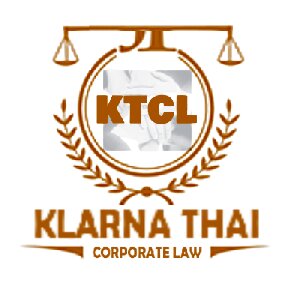Best Constitutional Law Lawyers in Thailand
Share your needs with us, get contacted by law firms.
Free. Takes 2 min.
Or refine your search by selecting a city:
List of the best lawyers in Thailand
Legal guides written by Smart Legal Solutions:
- Main Legal Measures to Protect Foreign Investment in Thailand
- The importance of the geographical indications for the Thai economy
About Constitutional Law in Thailand
Constitutional Law in Thailand involves the framework for the establishment and operation of government institutions in relation to the rights and duties of Thai citizens. Thailand's Constitution is the supreme law, and it provides the legal foundation for the establishment of various governmental branches. The most recent Constitution, enacted in 2017, outlines the structure of government, the powers of different governmental units, and the rights of individuals. Constitutional issues often involve questions about the legality of governmental actions, the protection of individual rights, and the interpretation of constitutional provisions.
Why You May Need a Lawyer
There are several situations where individuals might require legal assistance in the field of Constitutional Law in Thailand. Some of these situations include:
- Disputes regarding the abuse of governmental power or authority.
- Cases involving human rights violations, such as freedom of expression, religion, or assembly.
- Legal challenges to the constitutionality of laws and regulations.
- Issues related to the electoral process and political rights.
- Protection of individual rights as specified in the Constitution.
In such circumstances, a lawyer specializing in Constitutional Law can provide invaluable guidance and representation.
Local Laws Overview
Several key aspects of local laws are particularly relevant to Constitutional Law in Thailand:
- Constitutional Courts: Thailand has a Constitutional Court that is responsible for interpreting the Constitution and adjudicating disputes regarding its interpretation.
- Administrative Courts: Address disputes concerning the actions of government officials and public agencies, ensuring compliance with the Constitution.
- Human Rights Safeguards: The Thai Constitution guarantees several fundamental human rights, including right to life, liberty, and security; and provisions against discrimination.
- Separation of Powers: The Constitution outlines the division of governmental powers among the executive, legislative, and judicial branches to avoid concentration of power.
Frequently Asked Questions
What is the role of the Constitutional Court in Thailand?
The Constitutional Court in Thailand interprets the Constitution and reviews the constitutionality of laws and government actions. It acts as a guardian of the constitutional framework and ensures the proper exercise of political powers.
How can I challenge a law that I believe is unconstitutional?
Individuals or entities can file a petition with the Constitutional Court to review laws deemed unconstitutional. Legal representation is often necessary to navigate this complex process.
What rights are protected under the Thai Constitution?
The Constitution of Thailand provides for numerous rights, including freedom of expression, assembly, religion, and press, as well as protection against discrimination and rights to privacy and education.
What constitutes a human rights violation under Thai law?
Human rights violations involve acts that contravene the basic rights and freedoms guaranteed by the Constitution, such as unlawful detention, discrimination, or suppression of free speech.
What are the remedies for a constitutional violation?
Remedies for constitutional violations can include legal declarations of invalidity of laws, injunctions against unlawful governmental actions, and compensation for damages.
Can the Thai Constitution be amended, and what is the process?
Yes, the Constitution can be amended through a formal legislative process which often requires approval by the Parliament and, sometimes, a public referendum.
What impact do international human rights treaties have in Thailand?
International treaties, once ratified by Thailand, have a significant impact as they must be considered in the interpretation of domestic laws. However, domestic implementation is necessary for enforcement.
How are freedom of speech and assembly protected in Thailand?
These freedoms are constitutionally protected, but they are subject to limitations under laws aimed at preserving public order, national security, and public morality.
What should I do if I suspect electoral fraud?
If you suspect electoral fraud, you should report it to the Election Commission of Thailand and consider seeking legal advice for further action.
What is the difference between Constitutional Law and Administrative Law?
Constitutional Law deals with the overall structure of the state, fundamental rights, and governance, while Administrative Law focuses on the rules and procedures that govern government agency actions and decisions.
Additional Resources
For those seeking additional information or assistance in Constitutional Law, the following resources may be helpful:
- Constitutional Court of Thailand: Provides insights and decisions on constitutional issues.
- Thai Bar Association: Offers services and referrals to qualified lawyers specializing in Constitutional Law.
- National Human Rights Commission of Thailand: Advocates for human rights protection and can assist in cases involving rights violations.
- Election Commission of Thailand: Deals with issues regarding electoral procedures and rights.
Next Steps
If you need legal assistance in Constitutional Law, consider the following steps:
- Research: Begin by understanding your issue and gathering relevant information and documentation.
- Consultation: Seek a consultation with a lawyer who specializes in Constitutional Law. They can offer initial insights and advice on your situation.
- Legal Representation: If necessary, hire a lawyer to represent you and navigate the legal process on your behalf.
- Documentation: Ensure all your interactions, documents, and evidence are well-documented for legal proceedings.
- Follow Legal Procedures: Adhere to the guidance provided by your legal counsel and follow the necessary legal procedures for your case.
Legal matters involving Constitutional Law can be intricate, and professional legal guidance can help you achieve a favorable outcome.
Lawzana helps you find the best lawyers and law firms in Thailand through a curated and pre-screened list of qualified legal professionals. Our platform offers rankings and detailed profiles of attorneys and law firms, allowing you to compare based on practice areas, including Constitutional Law, experience, and client feedback.
Each profile includes a description of the firm's areas of practice, client reviews, team members and partners, year of establishment, spoken languages, office locations, contact information, social media presence, and any published articles or resources. Most firms on our platform speak English and are experienced in both local and international legal matters.
Get a quote from top-rated law firms in Thailand — quickly, securely, and without unnecessary hassle.
Disclaimer:
The information provided on this page is for general informational purposes only and does not constitute legal advice. While we strive to ensure the accuracy and relevance of the content, legal information may change over time, and interpretations of the law can vary. You should always consult with a qualified legal professional for advice specific to your situation.
We disclaim all liability for actions taken or not taken based on the content of this page. If you believe any information is incorrect or outdated, please contact us, and we will review and update it where appropriate.
Browse constitutional law law firms by city in Thailand
Refine your search by selecting a city.
















